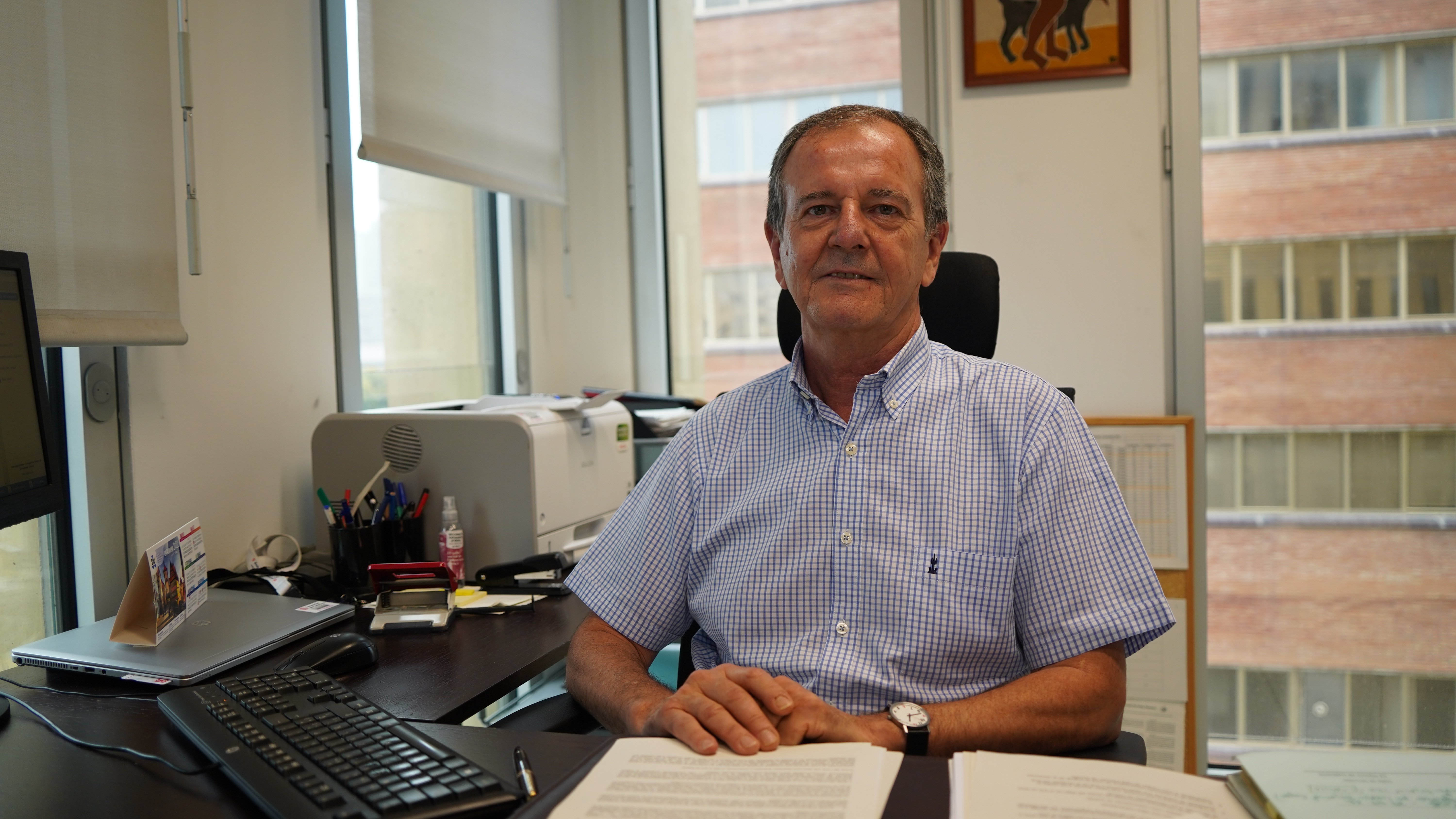"We're content." That was how judge Xavier Gonzàlez de Rivera described his reaction to the decision of the European Court of Human Rights (ECHR), released on Tuesday, which found the Spanish state guilty over the publication in the newspaper La Razón of photographs of the Spanish ID numbers of 33 Catalan judges who in 2014 had spoken out in a manifesto in favour of Catalonia's "right to decide" on its own political future. Of the thirty signatories, about 20 took their case to the court based in Strasbourg, as they were the ones for whom the evidence showed that their images had been extracted from the police database, as the European court has now confirmed, in a ruling which certifies that the Spanish state did indeed breach the right to privacy of the judges, but not that of freedom of expression, as denounced by their lawyer, Andreu Van den Eynde. However, the sentence is important because the court gives a reprimand to the Spanish state for allowing police reports to be made on people not suspected of committing any crime and for failing to sufficiently investigate the responsibilities for these actions.
“You have the feeling that you are monitored and outed. It didn’t affect me, but it did feel like I was being outed,” Gonzàlez de Rivera told ElNacional.cat. The judge of the Barcelona social court number 3 and spokesperson for the judicial association Àgora Judicial states that he has not suffered any obstacles in his judicial career, but that some colleagues have, something on which he prefers not to go into detail. The truth is that the General Council of the Judiciary (CGPJ) did not defend them when their images were published in a Spanish newspaper and, after a complaint from the far-right union Manos Límpias ("Clean Hands"), the judiciary opened an investigation into them, which it subsequently closed while reprimanding them for saying that "Catalonia is a nation". All this in a manifesto that was a very measured document, which asserted that in the Spanish legal system there was room for a referendum on self-determination. It was a legal position in the context of the political debate then taking place ahead of the the non-binding consultation of November 9th, 2014, called by the Catalan government of Artur Mas, later convicted of disobedience for the consultation which in turn was a precursor to the referendum of 1st October 2017, this time with long prison sentences for sedition for the political and civil leaders.
Effects of the court's ruling against Spain
What will this court condemnation mean for Spain? According to Gonzàlez de Rivera, "the sentence is a wake-up call that goes beyond the unpunished actions taking by the police. When it speaks of the authorities, it is referring both to the judiciary, for not having investigated enough, and to the police, that is to say the ministry of the interior, which cannot act with impunity." However, the judge is not confident that any self-correction from the Spanish government will take place, as it has been convicted on other occasions without changing its behaviour.
The actions of the so-called patriotic police brigade under the People's Party (PP) government, from 2014 to 2017, now demonstrated by the publication of audio recordings made by the retired police commissioner José Manuel Villarejo, are a sample of the type of illegal practices perpetrated against these 33 judges as well as against Catalan independence movement leaders and supporters through the Pegasus software, at least until 2019, as the Citizen Lab group showed in its Catalangate investigation. For now, the head of Barcelona investigative court number 21 has accepted Òmnium's complaint for processing, but only to look into whether three of the cultural organization's leaders had their mobile phones hacked, and subsequently to look for the perpetrators.
In addition, Gonzàlez de Rivera states that for justice to be done in the judges' case, it would be necessary to reopen the criminal case; however, the offences of revealing secrets and breaching privacy are already prescribed, since more than five years have passed. What the Catalan judges have asked, through the lawyer Josep Cruanyes, is for the Spanish Data Protection Agency to reopen the investigation into its violation of the right to privacy, based on Villarejo's audio and the ECHR ruling.
The arguments of the State Solicitors' Office
Within the contents of the ruling, judge Gonzàlez de Rivera admits that he was surprised that the argument of the Spanish state solicitors, representatives of the Spanish government, was that the 33 judges exposed their private lives to the public by having taken part in the manifesto. And will the state appeal the sentence? "It is a unanimous sentence, so it is difficult to lodge an appeal, but you never know," concludes Gonzàlez de Rivera. One of the seven European judges who took part in the ruling was the Spanish judge Maria Elosegui. The Spanish state must compensate each of the judges to the tune of about 4,000 euros, in addition to its conviction for practices outside democratic parameters.

